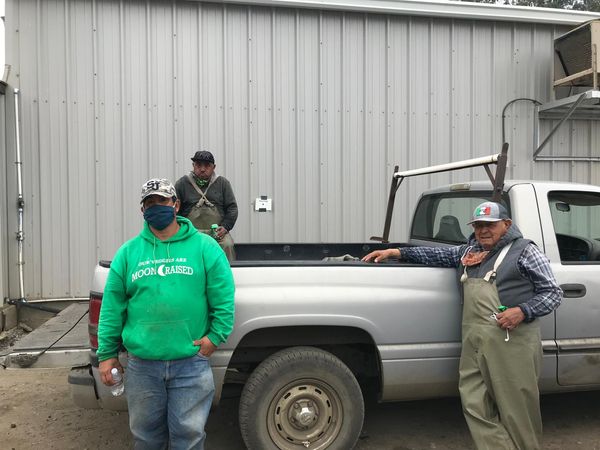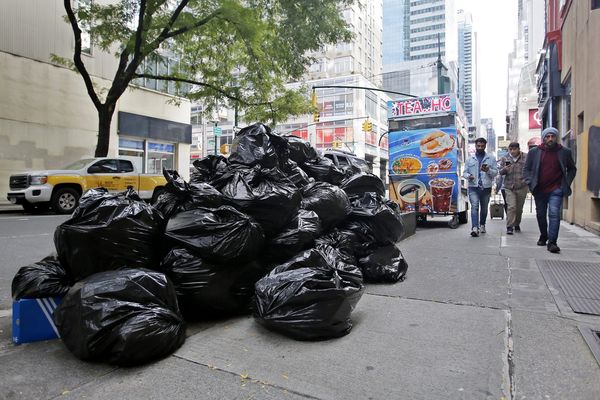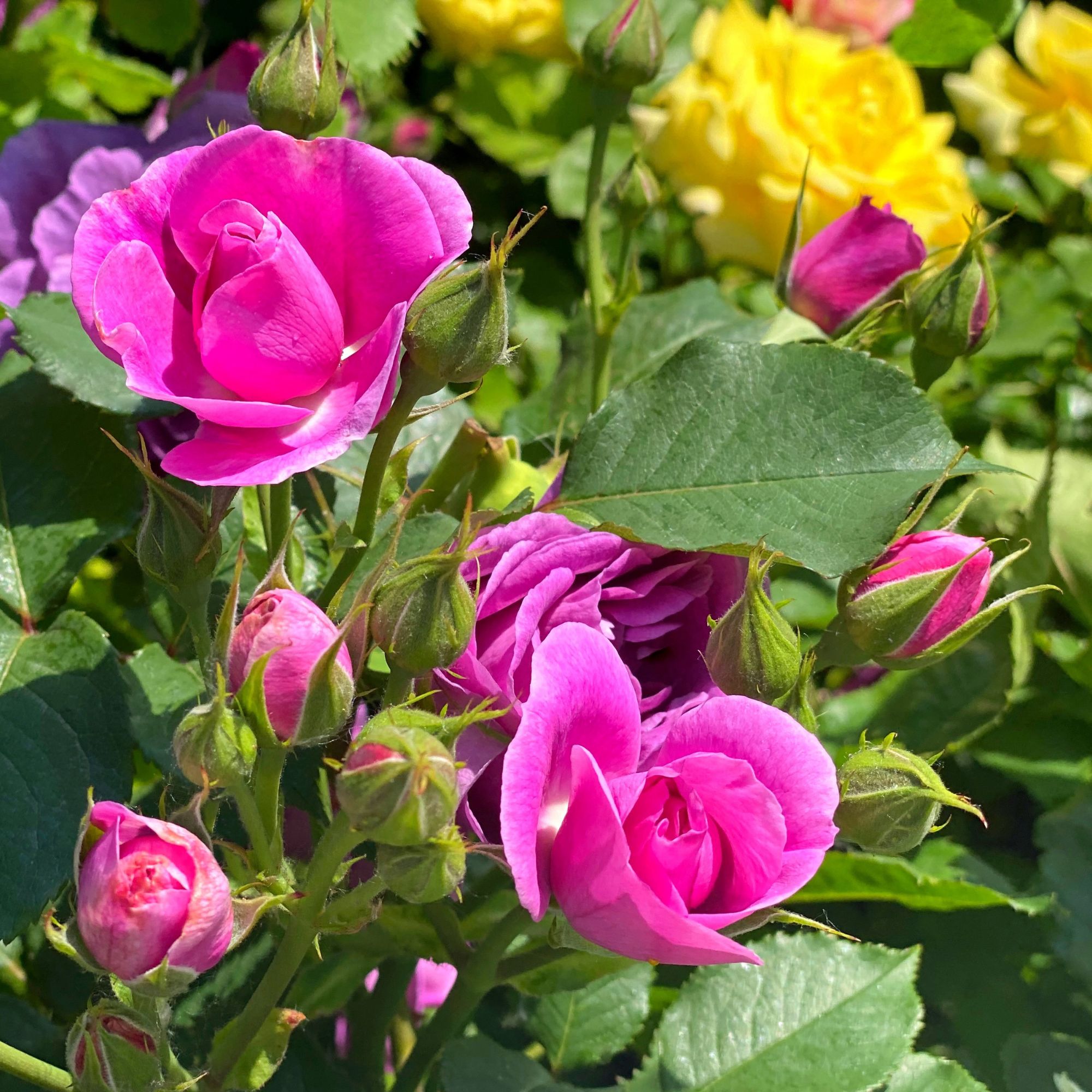
If you, much like James Joyce, would 'love to have the whole place swimming in roses', it's important to learn how to care for these oh-so-beautiful blooms first. Which means, yes, sussing out the answer to one very big question: should you fertilise roses?
That's right: it's all well and good learning how to grow roses like a pro, but it's just as vital you master all the tips and tricks you need to keep these cottage garden staples thriving.
For some, this might look like figuring out how to prune roses or grow roses from cuttings. For others, though, it's as simple as working out when and how to fertilise these beautiful blooms – and which rose feed is best, too. And, thankfully for you, that's where we come in...
Should you fertilise roses?
'Roses need to be fertilised to help them thrive long into the future, as these are hungry plants,' says Morris Hankinson, director of Hopes Grove Nurseries.
'Feeding your roses will help to produce more flowers and healthy growth,' he continues. 'Because, no matter how old roses are, they will always benefit from some fertiliser.'
The Royal Horticultural Society (RHS) agrees, noting that roses will absolutely 'grow better if given additional feed and mulched with well-rotted manure'.
What is the best fertiliser for roses?
So, what should you fertilise roses with? There are plenty of options available when it comes to choosing a brilliant rose feed for your roses, including specialist products like David Austin Controlled Release Rose Food, more general products like Fish, Blood And Bone, or even something as simple as alfalfa pellets.
Most experts, however, will suggest using a general-purpose liquid fertiliser on your container roses until they begin to bloom, before swapping over to a high-potash feed like Tomorite.
'I recommend using a one-off feed after winter pruning, such as VitaxQ4, which is full of nutrients, then using a high potash feed such as Tomorite from Amazon on a fortnightly basis throughout the flowering period,' says Morris.
Whichever you choose, be sure to follow the instructions on the packaging and mulch well afterwards.
'If one feed a year is preferred, David Austin Rose Food can be applied just once a year as it releases nutrients when the plant needs them,' continues Morris.
'This is applied in springtime, followed by mulching.'
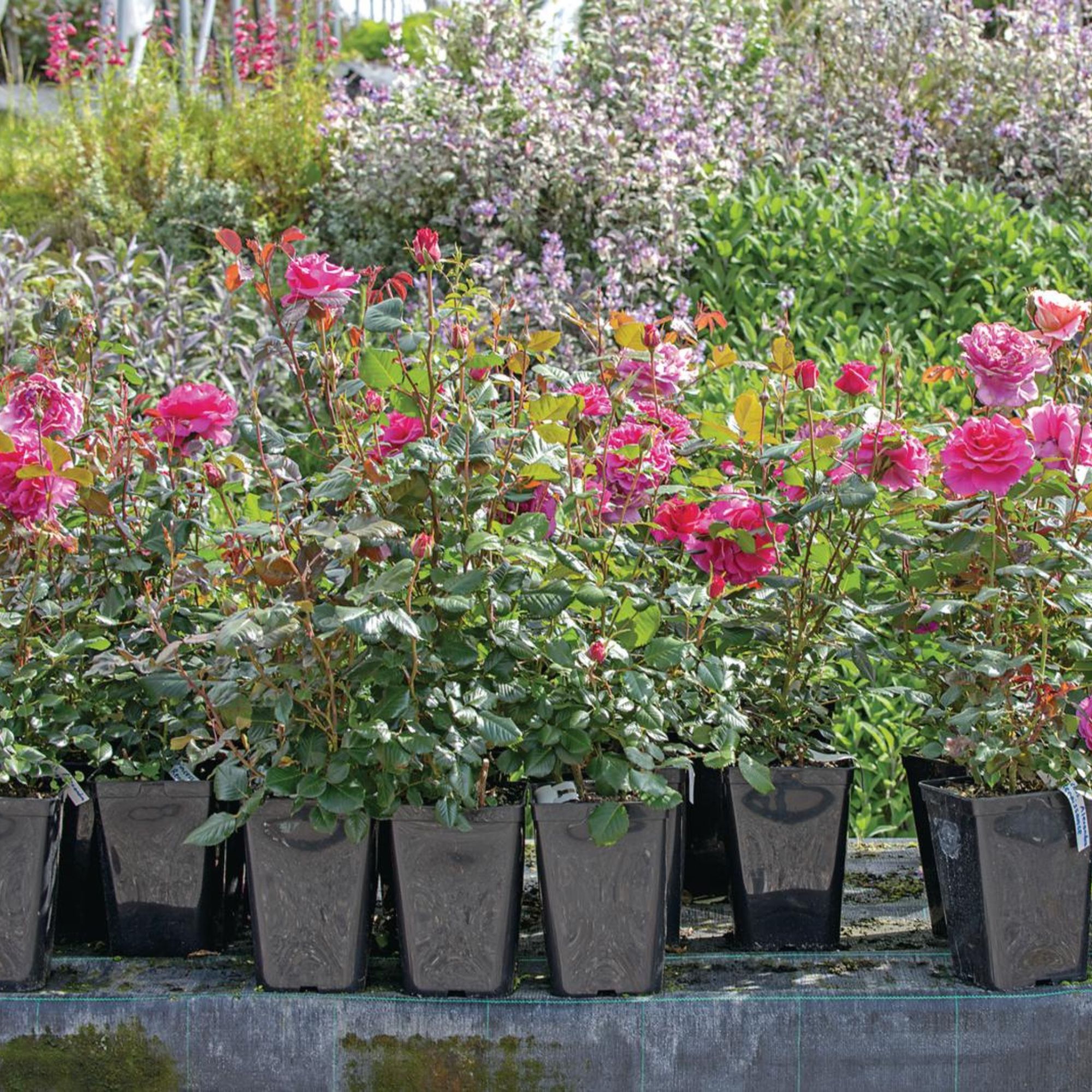
Of course, there are some gardening pros who prefer to keep things a little more au naturel when it comes to their rose feed.
Indeed, noting that she and her growers use alfalfa every single time they plant a rose, Gracie Poulson, founder of Grace Rose Farm and author of Garden Roses (Artisan Books) says: 'Alfalfa is known to stimulate growth and provide essential nutrients for the optimal health of your roses.'
To that end, then, Gracie advises you generously sprinkle one cup of alfalfa meal or alfalfa pellets from Amazon around the base of your rose after you've planted it – and be sure to water it thoroughly afterward, to help the pellets break down properly.
When to fertilise roses
The next big question you need to answer is this: when should you fertilise roses?
It's a good idea to fertilise your garden roses twice a year; once in March/April before they've flowered, and once over the summer after the first flush of blooms.
However, remember that 'roses growing in containers need feeding more because the nutrients in the compost will soon be used up,' explains Morris.
'Fertilise container grown roses every two weeks from April to August, using a good quality general fertiliser up until the flower buds form, then swapping for a high potash fertiliser as flowering begins.'
'There is a great deal of advice about feeding roses, from feeding roses after pruning in late winter and fortnightly during the flowering season, to simply twice a year – once in spring before flowering and once for repeat flowering varieties in summer,' says Morris.
'Personally, I recommend choosing the feeding schedule that's best for you – but be sure to also mulch around the roses to help retain moisture, leaving about 10cm around the base of the stem.'
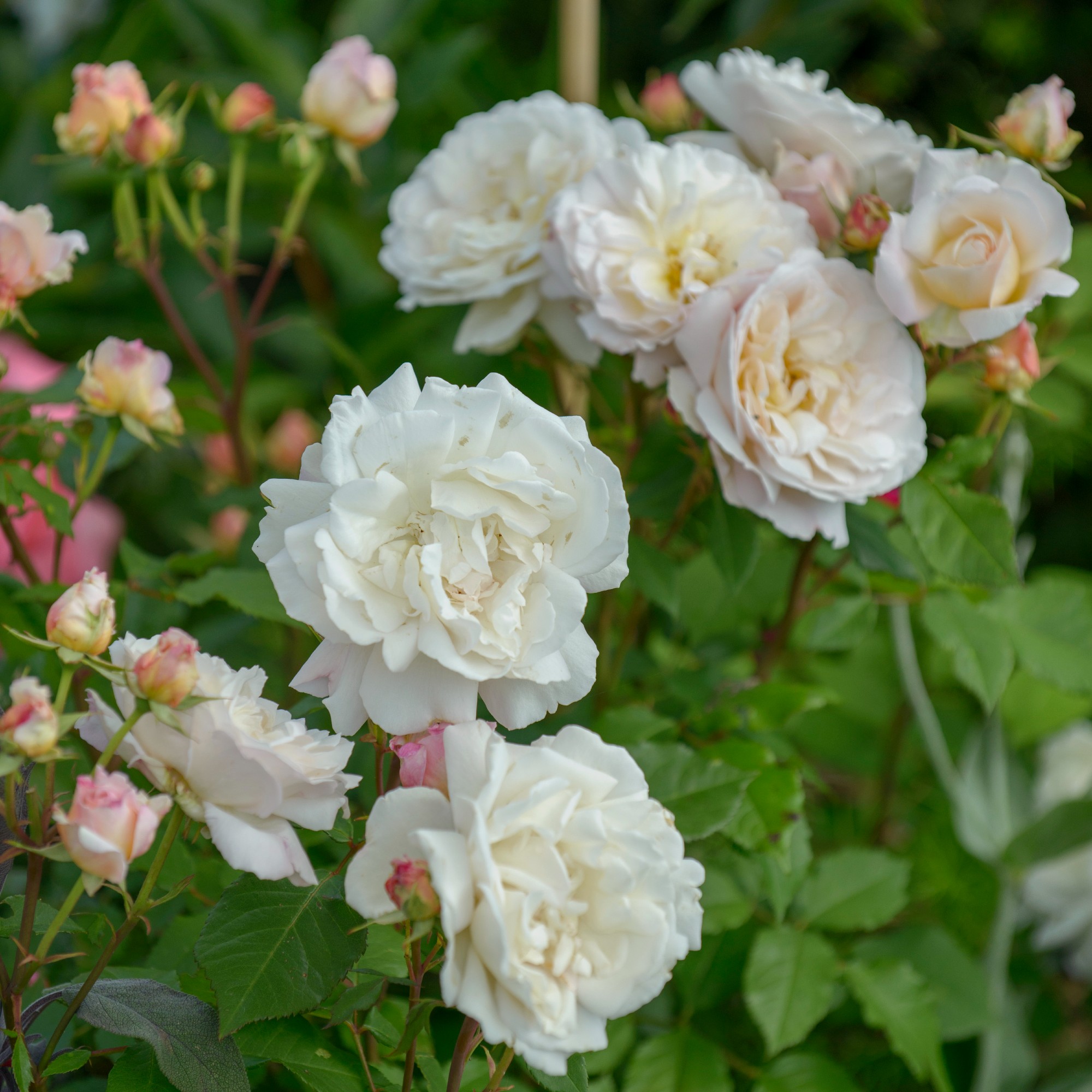
The RHS, meanwhile, advises that you fertilise your garden roses twice a year (once in the springtime before flowering, once in the mid-summer after the first flush of blooms).
When it comes to your container garden roses, however, they suggest you 'feed once a fortnight from mid-spring to late summer' with an all-purpose liquid fertiliser or something like the aforementioned Tomorite.
How to fertilise roses
When it comes to fertilising your roses like a pro, the easiest place to start is (sorry) reading the instructions on the packaging of the product you're using.
As a general rule, though, Morris notes that 'most fertilisers will need to be diluted in water, which can be done in a watering can and simply applied to the soil around the roses'.
'There are others, such as Fish, Blood and Bone from Amazon,' he continues, 'which is sprinkled onto the soil, lightly forked in and then watered.'
Now that you know you absolutely should fertilise roses, it's time to factor that into your list of garden jobs for the year ahead.
Fingers crossed your favourite flowers reward your efforts with some truly spectacular blooms later this year, eh?
